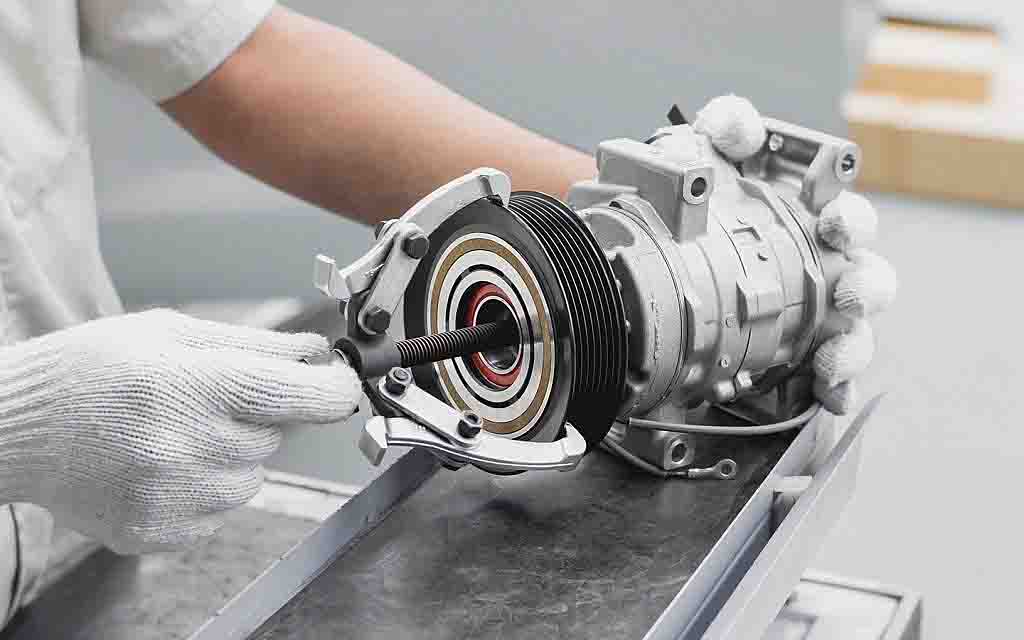When your air conditioner is running on low or is leaking, it may be a sign that your compressor is going bad. Water leaking from the air conditioning system could mean dirty coils, which may indicate a problem with the compressor and refrigerant. Don’t attempt to clean it up yourself, as you may be able to damage the unit. Instead, contact a qualified air conditioning repair technician to diagnose the problem and get a replacement.
If your air conditioner is producing a grinding noise every time you switch it on, the compressor may be on its way out. This noise could be caused by a faulty bearing or a loose compressor motor. You can also hear the motor thrashing inside the sealed chamber of the air conditioner. While this may be a sign of a faulty compressor, it can be dangerous to handle without training.
One way to identify a faulty compressor is by inspecting the compressor. While air conditioning units are designed to run for years, overuse or neglect can cause the compressor to fail and result in a high HVAC bill. Make sure to follow all manufacturer recommendations to keep your air conditioner running properly. In addition to routine inspections, consider a repair technician to diagnose the problem. Then, you can schedule the replacement of the compressor.
Before removing the compressor from your car, make sure that the battery is plugged into the negative terminal to prevent an electrical shock. Make sure to disconnect the compressor from the car before removing the wires and tubes. The compressor may be obstructed by other components, which can be removed by loosening bolts or disconnecting wiring. When the compressor has seized, it will emit a strong, unpleasant smell. The serpentine belt will be spinning in the air conditioning compressor pulley and will snap off quickly.
Another tell-tale sign of a bad compressor is hot air in the car. This is a sign that your AC compressor has failed to circulate the refrigerant effectively, resulting in hot air from the AC vents. A low refrigerant level can also cause high indoor temperatures. As a result, the compressor will run longer to maintain cool temperatures. That can result in a high electric bill and hot air inside your car.
If you’re worried about your electric bill, check the air filter and the condensate lines for dirt. If these are dirty, this could be a sign that your compressor is failing. Otherwise, you may have an evaporator, which would lead to a refrigerant leak. If you’re worried, check the air filter, too, and refrigerant levels to make sure there is no leakage.
The first sign of a failing air conditioning compressor is diminished airflow. Try to feel the airflow from the vent near the compressor. If the airflow is reduced or completely absent, then it’s time to call a professional AC repair expert. In some cases, this problem can also be caused by blocked ducts or a dirty air filter. If this occurs, call a HVAC technician to inspect your air conditioner.If you need more information you can also visit: 32degreesair.com/ac-repair-oviedo












